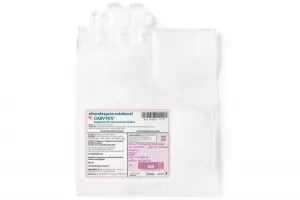The Secrets Your Body Whispered During Pregnancy… That Nobody Told You About
Have you ever had something happen during your pregnancy that felt like a “meh, okay” kind of deal… but now makes you wonder? Like… you had swelling in your third trimester, or didn’t feel your baby moving as much one day, or were told “don’t worry” about migraines postpartum. But what if those little red flags weren’t just quirks of motherhood? What if they were your body’s way of scribbling an important health note to your future self—as in, dude, listen up?
A few years ago, I met Sarah—a counselor, a mom of three, and someone who thought her post-birth headaches were “just stress.” Ten years later, she woke up with half her face numb. Now? She’s the one telling other moms: “Your health isn’t a side dish after pregnancy. It’s the main course.”
This isn’t just about “toxemia” or “gestational diabetes” being scary headlines. It’s about how some pregnancy complications? They’re like the first whisper of a problem that could roar decades later. Let’s get into it—without the medical jargon or the “you’re definitely doomed” energy. Tested. Approved. (Okay, fine—scientifically linked.)
Pregnancy Is Your Body’s Own Health Audit
I like to think of pregnancy like… a really intense reality show where you’re given one job: ensure this tiny human survives. But your body? It’s working overtime, adapting, bending, and sometimes calling a timeout. Oh, and guess what? These little hiccups don’t vanish after delivery.
A 2023 European Heart Journal study looked at thousands of women and found something eyebrow-raising. If you’ve had complications like preeclampsia or gestational diabetes? Your chance of a stroke later in life doesn’t stop at childbirth. Those complications? They quietly open the door for issues your vascular system might have decades from now.
Think of It Like This: Pregnancy Is Cardio for Your System
Picture this—you’re training for a marathon. If your knees buckle in week five, that’s not just a hiccup… it’s a signal your ligaments or shoes might need an upgrade. Same for your body during pregnancy. When things get tough, they’re basically stress-testing how well your entire system holds up.
Have you thought about how swollen ankles or hypertension during pregnancy might not just be pregnancy things anymore? They might be clues about how well your blood vessels behave in pressure situations long-term.:
When Normal Isn’t Normal
I’ll never forget my friend Jess, whose C-section started with a blood pressure warning. She came out of it healthy, baby too—but her doctor said something that stuck: “Your body passed this test with scars left. That means deeper screening is non-negotiable from here on out.”
This is where the “nobody told me this would happen” part comes in. Most of us expect flashy signs if we have a serious condition. But the sneaky truth? These pregnancy details are like your body whispering urgent secrets.
The Four Complications You Absolutely Need On Your Radar
Some pregnancy issues come with solid warning labels. Others? Not so much. Here are the four big players whose names you might’ve heard but definitely underestimated as red flags for future health.
Preeclampsia: The Blood Pressure Menace That Refuses To Stay Quiet
Let me get this out there fast: preeclampsia isn’t just high blood pressure. Preeclampsia is your body’s vascular system throwing a tantrum. It crunches your arteries, inflames your organ tissues, and packs half a dozen invisible risks you don’t clear with delivery.
Heads up: if you had this, research says you face significantly higher stroke risks later—up to 80% higher in some women, according to studies. And here’s the kicker? If you faced it even once, it changes your health baseline.
Gestational Diabetes: When Your Blood Sugar Says Hi—Then Doesn’t Leave
So your doctor told you not to eat dessert for nine months. Fair enough. But gestational diabetes doesn’t just end when the baby pops out. It’s like having a tiny internal glitch in how your body balances insulin… and that glitch doesn’t vanish forever.
This condition? It’s delaying insulin sensitivity, spiking your inflammation, and silently rewriting your metabolic game rules. It might not shout now—but in 10 or 20 years? Unquieted diabetes risks become double problems: heart disease and—yep—future stroke risk in women climbs, too.
Preterm Birth: The Umbrella You Don’t Expect
Did you deliver before 37 weeks? Here’s your health memo: preterm birth isn’t a fluke. It could mean your body went through vascular trouble you’re just not told about. That stress doesn’t reset on delivery day—it lives in your blood circulation… your clotting behaviors… your evolving risk map.
Here’s what most OB/GYNs skip explaining: when placental connections between you and baby have that early split, your system isn’t done healing. Not for a year. Not even for five.
Postpartum Hemorrhage: The Hidden Paper Trail This Leaves
The scariest part about heavy bleeding after giving birth? It’s not just about the moment. Severe postpartum bleeding zooms into brain oxygenation decisions years later. Why? Because your blood levels, heart stress, and iron counts during that time create… let’s just say, a reference memory your organs store.
I’ve read reports where the intense blood loss phase actually elevates a woman’s future stroke risk. Not always in a “go panic” way—but enough to stay vigilant. If this happened to you? Think of it as your body’s version of a insurance policy for bloodwork checkups—later.
Maternal Health & Stroke: What Your Prenatal Tour Taught Your Blood Vessels
If we step into the world of blood pressure and hormones for just a bit… let’s see what actually occurs under the surface when our bodies fail to downshift smoothly after delivery. Why does your trauma chart even matter 30 years out?
Estrogen’s Double Life
Estrogen? Let’s call it the not-so-neutral quarterback. Behind the scenes, it’s managing signals that affect platelet stickiness, cholesterol yap, and how your circulatory team handles stress. During pregnancy, it goes turbo. But if complications arrive, estrogen’s got… unfinished business.
| Complication | How Estrogen Mutes Signals | Future Consequences |
|---|---|---|
| Preeclampsia | Pro-inflammatory | Vascular aging, stroke vulnerability |
| Gestational Diabetes | Promotes insulin resistance | Hypertension, clot risk |
| Preterm Birth | Alters hormone spikes | Stress sensitivity |
Placenta Dysfunction—Way Bigger Than We Realize
We normally don’t think even after birth. The placenta was doing 10,000 things: nutrient pipelines, oxygen generators, pH balancers. If it didn’t perform flawlessly, it sent ripple effects into your cardiovascular health. Forever.
Not All Complications Mean Doom (Thankfully)
While scanning news about pregnancy-related stroke risk can spark alarms, remember—these links aren’t one-to-ones. Only a fraction of women with prior complications actually experience future problems. So what’s the game plan? Prevention. Knowledge. Awareness.
You Have Shot at Defying The Risk Curve
Research from experts at the American Heart Association makes it clear: lifestyle changes, early screenings, and smart fitness choices can hack your stroke surveillance system. For example, better nutrition postpartum can literally rewrite your corneal density stats (a major part of stroke monitoring).
How Doctors Sometimes Look Past It
Let’s be honest. Sometimes the medical system misses signals. Headaches dismissed as stress. Dizziness satisfies as working too hard. The key is learning what to ask. When I had gestational hypertension, a nurse finally asked, “Do you ever feel pressure, even a little faint?” That second question changed the next five years of my health strategy.
Hacks For Live-Longer: Your Postpartum Health Blueprint
Your family’s busy post-birth. But survival’s still your mission. So let’s talk bulletproof protocols—including check-ins most new mothers sweep under the rug.
The Blood Tests Specialists Whisper About
I remember getting CRP, homocysteine, and ferritin screenings after one pregnancy—kinda weird, right? But step one toward reducing long-term stroke risk is knowing where you bled hormones years before facts were blood pressure numbers. And those tests? Your skeleton key.
Micro Workouts That Lessons Your Vascular Lessons
5-minute movements, done in the middle of nap time or spat between dishes? They’re not just stress relief—they’re training your vascular system to snap back better. Not just simpler fitness, but future armor.
Timeline Realities: Long-Term Stroke Risk Doesn’t Hide, but Can You Decode It?
Stroke risks peak in midlife. But if you had complications early? This clock doesn’t start at 50. It knows who you were, what your body built through childbirth, and how you paid for every strain in the long game.
20 Years Later, Its Still Performing a Rehearsal
Even after two decades, some pregnancy lessons still play in the background. Don’t discount it—every scan, every test, could serve you best with a mix of hindsight and action.
Your Takeaway (Including The Love You Deserve)
Here’s what we’re walking away with:
- Your body does medical foreshadowing—grab those plot points, early.
- Stroke isn’t tomorrow’s worry, but… your complication Monitor? It should be.
- See your OB and GP for insights—not just checkups—for the years when risks fade. Or don’t.
Still thinking? Talk this over with someone who’s been there. Or just give your current provider a spin, and ask, “Hey, what do my old birth notes say to you?” Doctors call this “a risk review.” I call it… a heads-up from your earlier self. Be kind.
What about you? Any aha moments from your pregnancies or births you want to think back on? Drop a note below, or share your story with someone who’ll read it like it matters. Because according to every stitch of science out there, it does.

























Leave a Reply
You must be logged in to post a comment.